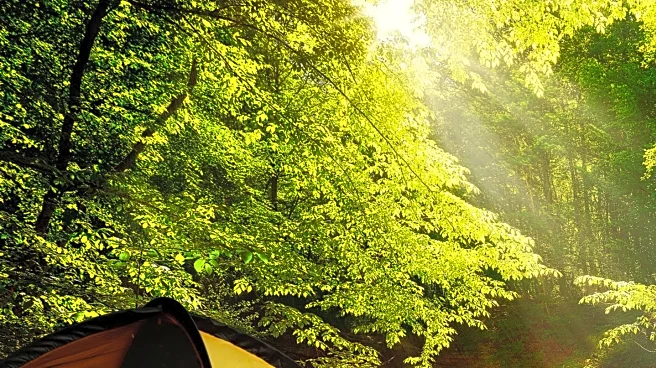What is the story about?
What's Happening?
Pennsylvania has announced a partnership with Timberline Glamping to offer an elevated camping experience, known as glamping, at eight state parks starting in 2026. This initiative aims to provide a more comfortable and luxurious camping option for visitors who prefer not to 'rough it' in traditional camping settings. Among the parks included in this program is French Creek State Park located in Chester County. The collaboration is expected to enhance the appeal of these parks by offering amenities that cater to both seasoned campers and newcomers seeking a more refined outdoor experience.
Why It's Important?
The introduction of glamping in Pennsylvania state parks is significant as it reflects a growing trend in outdoor recreation that caters to diverse preferences. By offering more comfortable accommodations, the parks can attract a broader audience, including those who may not typically engage in traditional camping. This move could boost local tourism and economic activity, benefiting nearby communities and businesses. Additionally, it aligns with efforts to make outdoor experiences more accessible and appealing to a wider demographic, potentially increasing park visitation and conservation awareness.
What's Next?
Reservations for the glamping experience are set to open, allowing interested visitors to plan their stays in advance. As the program rolls out, it will be important to monitor its impact on park attendance and visitor satisfaction. Stakeholders, including park officials and local businesses, may explore further partnerships or expansions based on initial feedback and success. The initiative could also inspire similar programs in other states, contributing to a nationwide trend in outdoor recreation.
Beyond the Headlines
The partnership between Pennsylvania state parks and Timberline Glamping may also raise discussions about the balance between conservation and commercialization of natural spaces. While glamping offers economic benefits, it is crucial to ensure that the natural environment is preserved and that the infrastructure development does not negatively impact the ecosystem. This initiative could serve as a case study for sustainable tourism practices in state parks.
















